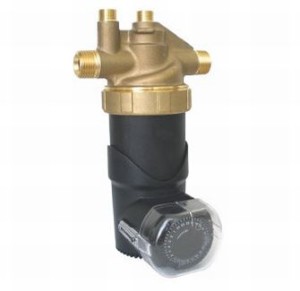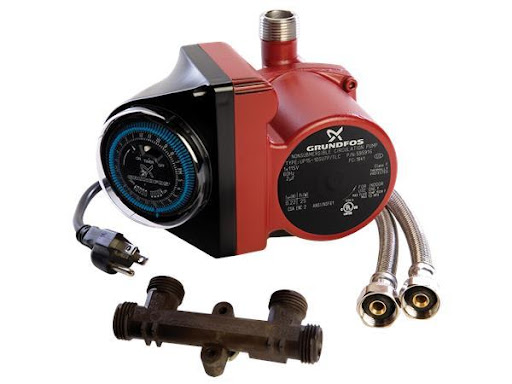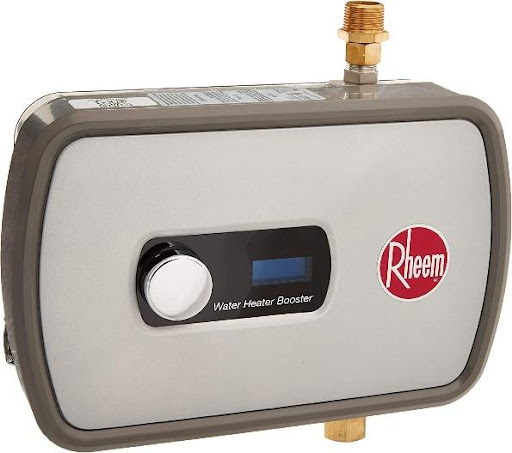At Robinson’s Plumbing Service, we are asked these questions all the time. The short answer is that it all depends on the type of water heater and the many different available features and options that you select.
Read on to learn more about the best types of water heaters for 2023 and how to choose the right one for your home and lifestyle.
Here is a table of contents so you can quickly find more information in the article:
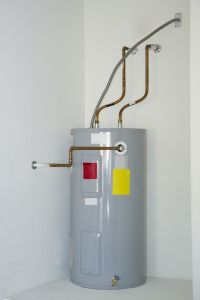
4 Main Types Of Water Heaters
Whether you’re trying to retrofit your existing water heater to be more energy efficient or you’re prepared for a full system upgrade, options and prices can run the gamut.
To position yourself to make the best decision, first, you’ll need to start with an understanding of the available water heater types.
Conventional storage tank water heaters
Electric, hybrid (heat pump), and gas tank water heaters are the three most common types of hot water heaters on the market.
Each uses an insulated tank that heats water and stores it until needed. There are temperature and pressure relief valves, which open to release excessive temperatures or pressures.
Gas water heaters (natural and propane) are more expensive but use less energy and are more cost-effective than electric water heaters.
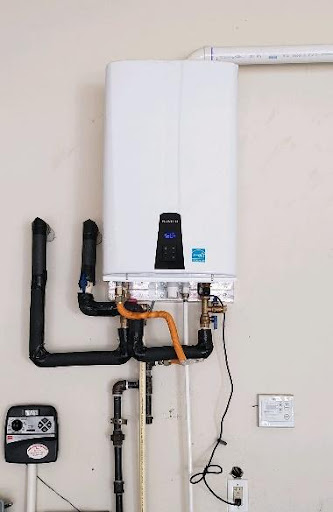
Tankless water heaters
Instead of storing water in a tank, tankless water heaters use a multi-stage heat exchanger to heat the water as it flows through the heater.
Tankless water heaters are more energy efficient and provide hot water as long as you have an adequate gas, electricity, and water supply. but don’t provide as much hot water as a storage tank. Tankless models are most compatible with homes that use natural gas to heat the water.
If you often don’t need hot water for multiple uses at once or are tired of waiting for the hot water tank to reheat after all the kids take a hot shower, tankless may be a great option for you!
Hybrid water heaters
These are a great middle ground between conventional and tankless water heaters. Hybrid water heaters capture heat from the air and transfer it to the water.
Hybrid models work more efficiently when installed in warm spaces because they must be installed in an area between 40° F to 90° F to work best.
While hybrid water heaters are extremely energy efficient, some specifications for installation location must be followed for them to work to their fullest potential. If you’re interested in a hybrid water heater, just ask one of our trained technicians about the best location to get its fullest potential.
Condensing gas water heaters
Condensing water heaters are an option if you heat with a gas source. They are very efficient and some models can produce a very large amount of hot water.
These models have a tank like a conventional water heater, but they capture exhaust gas blown through a coil at the base of the unit, where incoming cold water can absorb most of the heat.
Additional Water Heater Options
There are devices compatible with residential plumbing systems that enable you to keep a hot water supply with minimal upgrades needed. This also eliminates the need to run water and wait for the hot water to get to you.
For example, AutoCirc and Comfort systems recirculate the water in the line to keep it warm. It prevents you from running the shower or tap, wasting several gallons of water until the hot water arrives from the water heater.
Additionally, eclectic heater boosters can improve your electric water heater’s output by up to 45%—keeping your water hot for longer!
Additional Features in the Best Water Heaters
You’ll want to look for a few additional features to ensure you get an efficient water heater that offers longevity and reliability.
Brass valves
Water heater valves come in two types: brass and plastic. Brass valves tend to stand the test of time better than plastic valves.
Glass-lined tanks
These tanks are designed to reduce corrosion by applying a coating to the inside of the steel tank and heating that coating to create a heavy-duty protective glass layer.
Length of warranty
A warranty will cover your heater for 6 years to lifetime, depending on the model. We suggest looking for the longest warranty available on a water heater.
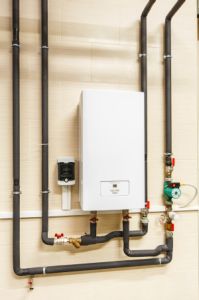
What Water Heaters Do Plumbers Recommend?
Robinson’s Plumbing Service is a direct dealer for these recommended brands:
AO Smith – There’s nothing like hot water! One company—A.O. Smith—has been delivering hot water for more than 80 years and has become a global leader in water technology.
State Water Heaters – State Water Heaters rigorously test their water heaters to ensure they perform at the highest standards. The company is known for manufacturing one of the longest-lasting water heaters on the market.
Bradford White Water Heaters – Bradford White water heaters can be gas or electric-operated. They’re high-performing, technologically advanced, and ideal for home usage.
Rheem Water heaters – Rheem water heaters have some great innovations that can have you connected to the heart of your plumbing system and provide superior longevity and reliability.
Navien – Navien offers the industry’s most advanced condensing tankless water heaters strong enough to support hot water for larger homes. Navien’s high-efficiency and eco-friendly condensing technology can reduce energy consumption and significantly reduce greenhouse gas emissions.
Rinnai® – Get endless on-demand hot water, space savings, eco-efficiency, and peace of mind from the world’s most reliable tankless gas water heater brand. Whether you need a residential or commercial water heater, Rinnai® tankless water heater will meet your needs.
How to Choose the Right Water Heater
When choosing the right water heater for your home, there are many factors to consider. Household size, daily hot water needs, and the unit’s energy efficiency can all affect your decision.
Here are a few other factors to think about and prioritize when determining the best water heater to accommodate your lifestyle.
1. Energy efficiency
Natural gas is more efficient and affordable than electricity, so running a gas water heater costs less than an electric one. If you don’t already have a natural gas connection, gas line installation will be an additional cost, but it could save you money in the long term.
Keep an eye out for Energy Star Certified water heaters. They can save you up to $3,500 over a lifetime in energy costs. Many gas, electric, and solar water heaters have an Energy Star rating.
Hybrid heat pump water heaters are also available and use less energy than standard electric water heaters!
2. Tank capacity
Nobody likes running out of hot water halfway through their shower, so it’s essential to consider the output of your heater in order to have a hot water supply that meets your needs. Many common tank water heaters hold 30, 40, 50 and 80 gallons.
A tankless water heater may be the solution to avoid running out of hot water. They heat on demand, so getting a properly sized system is key.
3. Overall size
Another important factor is the physical size and the amount of room available for water heater installation. New energy efficiency regulations have caused the model size to increase by 2-3 inches in height and width. Consider a smaller capacity heater if space is limited or see if a tankless solution is right and possible for you!
4. Standby losses
The amount of heat lost each hour from the stored water is called standby loss. This is important because it affects how often your water heater needs to heat the water and can increase your electricity bill.
5. Cycling losses
The amount of heat lost when the water circulates through the pipes or tank is called cycling loss. Similar to standby loss, this impacts how often your water needs to be heated, affecting how much energy your water heater uses.
Which Water Heater Is Right for You?
If you’re still on the fence about which type of water heater is right for your home, contact the experts at Robinson’s Plumbing Service. Our friendly and honest plumbing technicians will evaluate your needs and budget and recommend energy-saving options that align with your family’s lifestyle.

